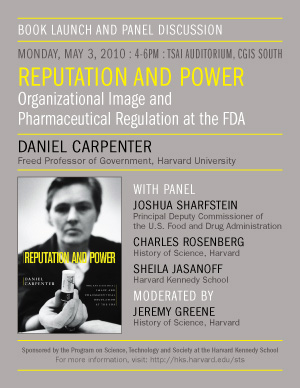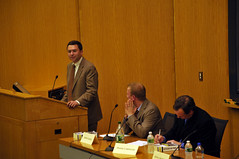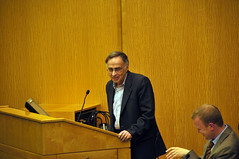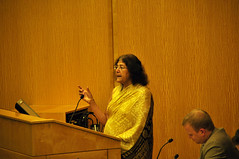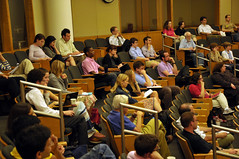Program on Science, Technology and Society at HarvardHarvard Kennedy School of Government | Harvard University |
|||||||
|
|
Reputation and Power: Organizational Image and Pharmaceutical Regulation at the FDADaniel CarpenterFreed Professor of Government, Harvard University May 3, 2010, 4:00pm-6:00pm AbstractThe U.S. Food and Drug Administration is the most powerful regulatory agency in the world. How did the FDA become so influential? And how exactly does it wield its extraordinary power? Reputation and Power traces the history of FDA regulation of pharmaceuticals, revealing how the agency's organizational reputation has been the primary source of its power, yet also one of its ultimate constraints. Daniel Carpenter describes how the FDA cultivated a reputation for competence and vigilance throughout the last century, and how this organizational image has enabled the agency to regulate an industry as powerful as American pharmaceuticals while resisting efforts to curb its own authority. Carpenter explains how the FDA's reputation and power have played out among committees in Congress, and with drug companies, advocacy groups, the media, research hospitals and universities, and governments in Europe and India. He shows how FDA regulatory power has influenced the way that business, medicine, and science are conducted in the United States and worldwide. Along the way, Carpenter offers new insights into the therapeutic revolution of the 1940s and 1950s; the 1980s AIDS crisis; the advent of oral contraceptives and cancer chemotherapy; the rise of antiregulatory conservatism; and the FDA's waning influence in drug regulation today. Reputation and Power demonstrates how reputation shapes the power and behavior of government agencies, and sheds new light on how that power is used and contested. More book information: Princeton University Press webpage PanelJoshua SharfsteinPrincipal Deputy Commissioner of the U.S. Food and Drug Administration Charles RosenbergHistory of Science, Harvard Sheila JasanoffHarvard Kennedy School Moderated byJeremy GreeneHistory of Science, Harvard, and Harvard Medical School PhotosA number of photos were taken by Alex Wellerstein. See this Flickr set for all of them. VideoThe full hour and 45 minutes of this panel were recorded on video. They have been uploaded to YouTube in 5-10 minute snippets (due to YouTube’s video length constraints), with a total of 14 segments. To browse the segments, click here for the link to a playlist of all of them, or begin with the clip featured here. Note that at the beginnings of some clips, there is a black screen for a few moments; this is an artifact of the way the video was split into separate clips. |
||||||
